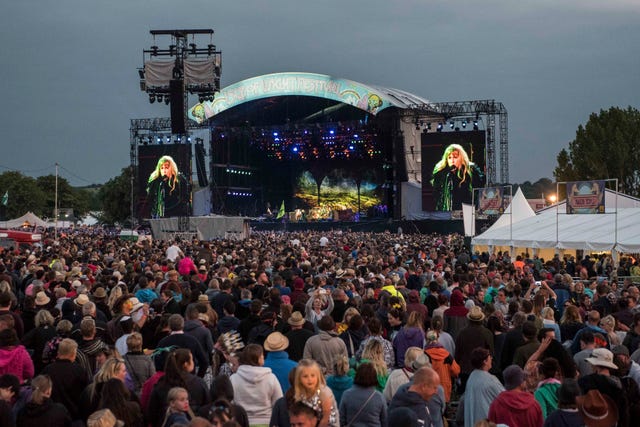There has been an increase in the number of women and people from black, Asian and minority ethnic (BAME) communities working in the music industry in recent years, according to UK Music.
The industry body’s 2020 diversity report found the proportion of people working in the sector who fall within the two categories has increased since 2016.
However, the research also suggests women and people from BAME backgrounds are less well represented in higher-paid jobs in the industry.

The proportion of people from BAME communities working in the industry has risen from 15.6% in 2016 to 22.3% this year.
Female representation has gone up from 45.3% in 2016 to 49.6% in 2020.
Among those earning more than £100,000 per year, only 27% were women and 12.2% were from a BAME background.
These figures rose to 59.4% and 33.6% respectively for those earning less than £15,000.
Women made up 60% of those doing unpaid work while the figure for those from a BAME background stands at 40%.

UK Music chief executive Jamie Njoku-Goodwin said: “As an industry, we are united in our determination to lead the way on improving diversity and inclusion in our sector and across society.
“This report consists of a frank and candid analysis of the current situation our industry faces, and a bold and ambitious ten-point plan for how to achieve the positive change we all want to see.
“It’s relevant not just to the music industry, but to organisations everywhere.
“If our music industry is to tell the story of modern-day Britain, then it needs to look like modern-day Britain too.
“This groundbreaking report is an important step towards achieving that.”
UK Music’s diversity taskforce has published a ten-point plan to “lay out a clear roadmap for change”.
Included in the plan is a commitment from UK Music to stop using the urban classification when referring to genres including soul or rap.

The body’s members will also be asked to compile a database of those responsible for managing diversity in their organisation.
UK Music diversity taskforce chair Ammo Talwar said: “Against a backdrop of global change the diversity taskforce has been carefully listening, challenging and working behind the scenes to help shape a transformational and game-changing ten-point plan.
“This plan is data-driven and evidence-based with metrics and lived experience.
“It’s the accumulation of nine months’ work across the whole music industry to support yet hold the industry to account.
“No tokenistic statements, no short-term wins but a truly collaborative long-term plan that reboots the sector and ensures diversity is front and centre of all major decisions.”
A total of 3,670 people were surveyed as part of the UK Music research.
